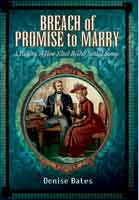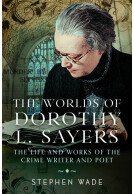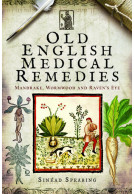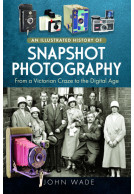Historical Research Using British Newspapers (Paperback)
Imprint: Pen & Sword History
Pages: 181
Illustrations: 50
ISBN: 9781473859005
Published: 6th April 2016
(click here for international delivery rates)
Need a currency converter? Check XE.com for live rates
| Other formats available | Price |
|---|---|
| Historical Research Using British… ePub (13.8 MB) Add to Basket | £6.99 |
Thanks to digitisation, newspapers from the seventeenth to the twenty-first century have become an indispensable and accessible source for researchers. Through their pages, historians with a passion for a person or a place or a time or a topic can rediscover forgotten details and gain new insights into the society and values of bygone ages.
Historical Research Using British Newspapers provides plenty of practical advice for anyone intending to use old newspapers by:
* outlining the strengths of newspapers as source material
* revealing the drawbacks of newspapers as sources and giving ways to guard against them
* tracing the development of the British newspaper industry
* showing the type of information that can be found in newspapers and how it can be used
* identifying the best newspapers to start with when researching a particular topic
* suggesting methods to locate the most relevant articles available
* demonstrating techniques for collating, analysing and interpreting information
* showing how to place newspaper reports in their wider context
In addition nine case studies are included, showing how researchers have already made productive use of newspapers to gain insights that were not available from elsewhere.
As featured in
Who Do You Think You Are
Author article 'For the sake of the children' as featured by
WDYTYA? Magazine, March 2020
Referenced in 'Resources' part of Paul Blake article The Gazette
WDYTYA? Magazine, August 2019
As referenced in resources part of 'Read all about it!' article
WDYTYA? Magazine, May 2019
As featured in
Jersey Evening Post
As featured in
Jersey Evening Post
Overall, this is a useful volume, modestly
Reference Reviews, volume 31, issue 2 – reviewed by Diana Dixon
priced, that offers a considerable amount of
helpful advice to those wishing to use newspapers for historical research.
An invaluable reference work for historians who wish to unearth new family, social, economic and political historical information and seek advice on how to analyse and interpret.
Essex Family Historian No.161
Author article as featured in
WDYTYA? Magazine, March 2017
For those requiring guidance from an academic perspective this book has a great deal to offer.
Federation of Family History Societies
The author provides much practical information and advice for those wishing to use these resources, and where and how to find them.
Bristol & Avon Family History Society
In recent years more and more people are undertaking some form of historical research, usually so that them may develop their family tree and discover more about the period they were from. In recent times more and more archives are digitising their records and making them available online, some charge others are free.
Amazon reviewer
This wonderful little volume by Denise Bates explains how to use the British Newspaper as an aid to historical research, it may seem rather narrow but there are some excellent tips. While explaining the development of the newspaper industry in Britain along with what is call the news chain and content of older newspapers. She also covers the factors a researcher must take in to an account while researching, which has always been a factor.
For me some of the most interesting chapters were those covering the use of modern technology to aid your research. To those with a history degree these tips on data handling techniques would seem rather basic, but to a layperson I believe are necessary. What is an excellent tip, is the use of spreadsheets for data handling and recording during historical study. Both the good and bad points of using spreadsheets are laid before you for you to make up your own mind.
This is an excellent little volume that will aid both experienced and inexperienced researcher, even though it guides you through using newspapers the techniques in this book are important. An excellent tool for those interested in doing any historical research.
5 STARS.
This excellent guide to the increasingly accessible source of contemporary newspapers, is essential for all types of historical research, from family history to academic study. The book opens with an extremely useful introduction to all aspects old newspapers, including the history of specific titles and the processes of publication. The reader is then guided through the different uses of this rich resource within a range of research activities, with practical tips and advice, clear instructions and interesting case studies.
Angela Buckley
Denise Bates writes confidently and with authority on this fascinating topic and her advice is invaluable. She addresses all kinds of readers and researchers, from beginners to more experienced historians and there is something new for everyone to learn. She explains more complex usages, such as data handling techniques, with ease and clarity.
I use historical newspapers regularly in my work and yet there was plenty of interesting ideas and new ways of exploiting this wonderful resource for me to try. ‘Historical Research Using British Newspapers’ is indispensable for all those interested in history and I would highly recommend it.
5 STARS!
This book charts the evolution of the British Press since the 17th century, sign-posting the titles that are most helpful for researching particular classes of society or topics of study, and contains plentiful tips for getting the most out of online searches, and where to look if a newspaper isn't online.
Who Do You Think You Are? Magazine, Summer 2016
Historical Research Using British Newspapers is a prime providing plenty of practical information and advice for anyone using old newspapers as part of their research. Denise explains everything from identifying the best newspapers for the sort of information you want demonstrating techniques for gathering, sorting, analysing and interpreting one's information.
Ripperologist, June 2016
Whether you're a seasoned researcher or dipping your toe into old newspapers for the first time, there is lots of valuable information here to help you on your research journey.
Family Tree Magazine August 2016
Formerly, researchers who wanted to explore the past using historical newspapers faced many hours scrolling through microfilm, or handling large, fragile publications with columns of tiny print.
Sue Wilkes, Author
Now more and more old newspapers are available online in digitised form, and Denise Bates shows us how to use this exciting resource to best effect, as well as newspapers only available in print form.
The author discusses the history of newspapers and potential problems with class, political or social bias. She explains how to sift through the evidence, and combine newspaper reports with other historical sources, with the aim of achieving a balanced perspective on people’s lives and historic events.
Historical Research Using British Newspapers includes many tips on how to organize and save your research, which will prove helpful to new and experienced researchers alike. There’s a useful section on statistics and data handling techniques, too. A particular strength of this book is the number of case studies and worked examples from true-life stories.
An excellent reference work for local and family historians.
During the course of my own genealogical research into my own family, there have been times when sites like Ancestry and Find My Past have turned up newspaper articles about certain family members. It is often the case that looking at a census form (with 1911 the most recent available census, which is a national scandal, never mind the fact we have to pay to look at research that really belongs to us!) simply doesn't provide enough material. Almost everyone will have a family member who has been mentioned in the local or sometimes national newspapers - Denise Bates gives clear and concise, practical instructions on how to research newspapers in this superb book from Pen and Sword.
Books Monthly, May 2016 - Paul Norman
...This wonderful little volume by Denise Bates explains how to use the British Newspaper as an aid to historical research, it may seem rather narrow but there are some excellent tips. While explaining the development of the newspaper industry in Britain along with what is called the news chain and content of older newspapers. She also covers the factors a researcher must take in to an account while researching, which has always been a factor.
Freelance review - Paul Diggett
For me some of the most interesting chapters were those covering the use of modern technology to aid your research. To those with a history degree these tips on data handling techniques would seem rather basic, but to a layperson I believe are necessary. What is an excellent tip, is the use of spreadsheets for data handling and recording during historical study. Both the good and bad points of using spreadsheets are laid before you for you to make up your own mind.
This is an excellent little volume that will aid both experienced and inexperienced researcher, even though it guides you through using newspapers the techniques in this book are important. An excellent tool for those interested in doing any historical research.
This book 'provides information and practical advice...' and '… is designed for anyone who uses old newspapers as source material.'
Barnsley Chronicle
About Denise Bates
Denise Bates read Modern History at St Anne’s College, Oxford, specialising in the period 1815 – 1914. A Chartered Accountant by profession, her interests now relate to the voluntary and community sector, research and writing. Denise has written articles on a variety of topics for national magazines and gives talks related to her topics of historical research.
Website: http://www.denisebates.co.uk



















